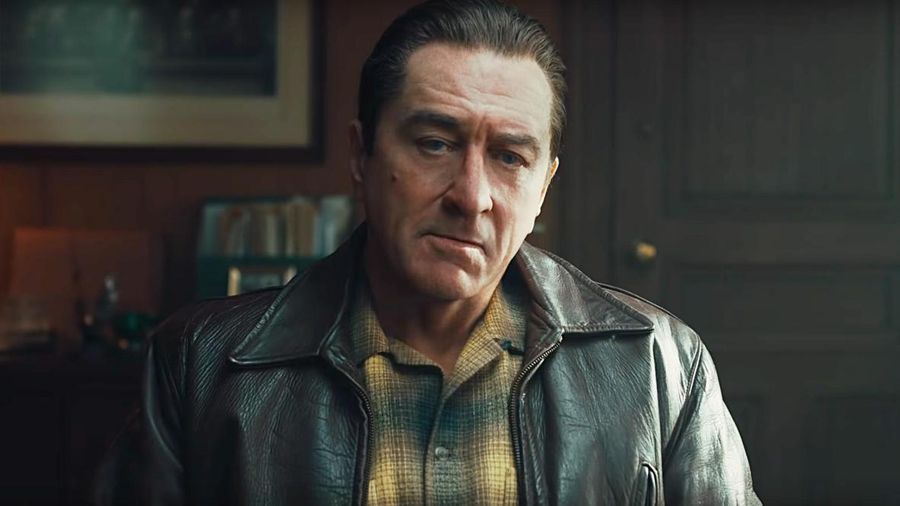Director Martin Scorsese released an elegiac work that demonstrated a deep understanding of the world at large. The film was lyrical, delving into a work that jumped from one time zone to another, capturing a mobster at his most vulnerable, broken and hard-hitting. It starred Robert De Niro, but Al Pacino was also impressive, playing the type of boisterous politician whose quest to take down the mafia leads him to his own demise. It was a deeply ambitious work that stemmed from the blueprints Jean-Pierre Melville left on him.
The two Melville films captured the essence of the work in question, capturing a hypnotic layer to the work in question. “The tone of the movie, it had to be contemplative and an epic, but it had to be an intimate epic,” he said. “I showed a couple of Jean-Pierre Melville films, Le Doulos and Le deuxième souffle [aka Second Breath], with Jean-Paul Belmondo, both of those pictures. It’s a very different world, but I liked the understatement of it.”
He also ventured further into the realm of European cinema: “Then I showed a film called Touchez pas au grisbi, which means ‘Don’t touch the loot,’ which is a very famous early ’50s French gangster film with Jean Gabin,” Scorsese said. “When I was shooting [Robert De Niro] in Casino, I felt he was taking on the stature of a late-to-middle-age Gabin. He had a lot of power to him, but he had a serenity to him too and a coolness. Bob, I felt, was getting that way in Casino. Grisbi has a similar [theme] in the sense that they are older gangsters in Paris, and they are getting involved in stuff they don’t want to get involved with. It’s really the tone, but I like the Gabin feeling of his deportment, how he presented himself.”
This makes a lot of sense, considering that the film’s non-linear story is one that stems from European cinema, more so than American. “In fact, we used some of the harmonica music of Grisbi in the film and Robbie Robertson did the harmonica based on the French noir music of the early 50s. Another one was Jules Dassin’s Rififi,” Scorsese said. “There was a period there where a lot of those films were coming over here.”
And what of the slow-motion films that fascinated him as a child? “I’ve been obsessed with slow-motion since I first saw films. I guess for me, the slow-motion dreams in Los Olvidados are something that stayed with me for a long time,” Scorsese said. “I love the way that people’s expressions change and the movement of the flesh on the arms. It’s very, very high speed this camera, Phantom. I felt like it would be only two places: the Joe Colombo shooting in Columbus Circle and the wedding itself, because the wedding is a funeral. People laugh, ‘Oh, mob hits, and that sort of thing,’ [but] the Colombo thing gave me a chance to [capture] the pain of it, the suffering of all the people around, you see all their faces.”
Another European director is Alfred Hitchcock, who also inspired Martin Scorsese throughout his career. Hitchcock’s influence can be seen in Cape Fear, but some of his imprints made it into The Irishman. Psycho gave him a textbook to operate from.
“I made choices to take most of the music out anyway, because of the methodic nature of who he is, Frank, and once he has to do this terrible thing, we want to see him go step by step with it. Take them all the way through, the way he feels when he’s doing it. One has to be so careful with film music. Very often it tells you how to feel. But what if you are just uncomfortably watching this guy? It’s an air of finality that we have to witness this, the way it happens and then witness after.”
And then there’s Journey to the End of The Night, which inspired his creative muse from a narrative point of view: “I always talk about there’s a quote towards the end where the main character gets killed, he’s talking with his girlfriend. She says, ‘What happened to you?’ He says, ‘What happened to me is a whole life has happened to me’ and she shoots him. It’s a tough book. It’s ugly. When he says that, it hit me, he’s right. A whole life. Something I can never explain to you. You had to live it with me. You had to be me. That’s what we were trying to go for in the film.”
The Irishman holds many cinematic influences, but it’s interesting that Scorsese didn’t mention The Godfather Part II as one of the influences. For one, both The Godfather Part II and The Irishman feature searching performances from Pacino, and for another, they leap from one timeline to the next in the hope of fleshing out the world they inhabit. And both close on powerful men, now withering in their chairs, the sins having finally caught up with them.
